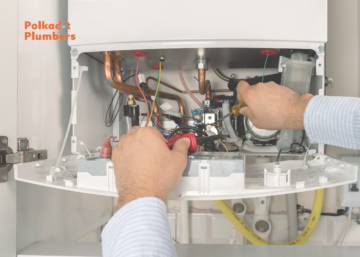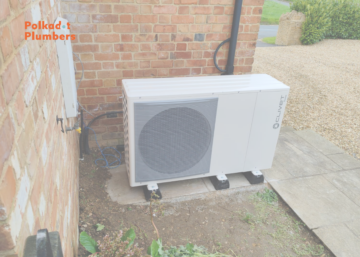Boiler pressure is a critical aspect of any well-functioning heating system. This common issue can be a source of worry, especially during colder months.

Understanding the causes and solutions for a boiler pressure issue is essential. It can help you troubleshoot problems and maintain your heating system effectively.
In this comprehensive guide, we’ll explore the reasons behind your boiler losing pressure. We’ll also provide practical steps to resolve the issue.
Whether you’re a DIY enthusiast or a homeowner with no specialized knowledge of heating systems, this guide is for you.
Understanding Boiler Pressure
Boiler pressure refers to the balance of water and air within your central heating system. It’s measured in ‘bars’ on your boiler’s pressure gauge.
A healthy boiler typically operates between 1 and 2 bars. However, this can vary depending on the model and manufacturer’s guidelines.
If the pressure is too low, your boiler may fail to heat your home efficiently.
On the other hand, too high pressure can put unnecessary strain on your boiler and heating system.
Understanding boiler pressure is the first step towards diagnosing and fixing boiler pressure issues.
Common Causes of Boiler Losing Pressure
There are several reasons why your boiler might be losing pressure.
Understanding these causes can help you identify and fix the issue.
Here are some of the most common causes:
- Leaks in the central heating system
- Faulty pressure relief valve
- Radiator issues and airlocks
Let’s delve into each of these causes in more detail.
Leaks in the Central Heating System
Leaks in your central heating system can cause your boiler to lose pressure.
These leaks might be small and hard to spot.
They could be anywhere in the system, from the boiler itself to the radiators or pipework.
If you notice damp patches near your radiators or boiler, it could be a sign of a leak.
In such cases, it’s best to call a professional to locate and fix the leak.
Faulty Pressure Relief Valve
The pressure relief valve is a safety device on your boiler.
It releases water when the pressure gets too high.
If this valve is faulty, it might be releasing water unnecessarily, causing your boiler to lose pressure.
You might notice a small pipe leading outside from your boiler dripping water.
This is a clear sign of a faulty pressure relief valve.
Radiator Issues and Airlocks
Air can sometimes get trapped in your radiators, causing airlocks.
These airlocks can cause your boiler to lose pressure.
You can usually identify this issue if your radiators are not heating up evenly.
The top of the radiator might be cooler than the bottom.
In such cases, you might need to bleed your radiators to remove the airlocks.
How to Check Your Boiler Pressure Gauge
Checking your boiler pressure gauge is a simple task.
The gauge is usually located on the front of your boiler, there should be a green zone which indicates the ideal pressure. If the needle is in the red zone, your boiler pressure is too high. If it’s in the white zone, your boiler pressure is too low.
Regularly checking your boiler pressure gauge can help you spot pressure issues early.
Step-by-Step Guide to Repressurizing Your Boiler
Repressurising your boiler, thankfully is a task you can do yourself!
- First, ensure your boiler is switched off and cooled down (This is crucial for your safety).
- Next, locate the filling loop (Usually a silver or grey flexible hose with small valves at each end).
- Ensure both ends of the filling loop are securely attached.
- Then, slowly open the valves. (You will hear water flowing into the boiler).
- Keep an eye on the pressure gauge, once it reaches the green zone, close the valves.
- Remember to remove the filling loop if it’s not a part of the boiler.
- Finally, switch the boiler back on and check if it’s working properly.
Bleeding Radiators to Remove Airlocks
Airlocks in your radiators can cause your boiler to lose pressure, so bleeding your radiators can help resolve this issue.
First, you’ll need a radiator key or a flat-blade screwdriver.
Locate the bleed valve on your radiator.
Turn the key or screwdriver counterclockwise to open the valve.
Using the Filling Loop to Adjust Pressure
The filling loop is a key tool in adjusting boiler pressure, it allows you to add water to the system.
- First, ensure the boiler is off and cooled down.
- Locate the filling loop and attach it securely.
- Open the valves to allow water into the system.
- Watch the pressure gauge as you do this.
- Once the pressure is in the green zone, close the valves.
- Remember to remove the filling loop after use.
When to Call a Professional Heating Engineer
While some boiler pressure issues can be resolved at home, others require professional help.
If your boiler keeps losing pressure even after repressurising, it’s time to call a heating engineer.

This could indicate a more serious issue, such as a leak in the system or a faulty pressure relief valve.
A professional can accurately diagnose and fix the problem, ensuring your boiler operates safely and efficiently.
Remember, working on a gas boiler without proper certification is not only dangerous but also illegal in many areas.
So, if you’re unsure about any aspect of your boiler’s operation, it’s always best to consult a professional.
Preventative Measures and Regular Maintenance
Preventing boiler issues is easier, and certainly cheaper than fixing them.

Regular maintenance is key to keeping your boiler in good working order. This includes checking the pressure gauge regularly and repressurising the boiler as needed.
It’s also important to inspect your central heating system for leaks. Even a small leak can lead to a significant drop in boiler pressure over time.
Remember to also check your radiators for cold spots, which could indicate airlocks. Bleeding your radiators can help remove these airlocks and restore proper pressure.
Finally, consider investing in an annual boiler service. This can help identify potential issues before they become serious problems.
The Importance of Annual Boiler Service
An annual boiler service is more than just a routine check-up. It’s a comprehensive inspection and maintenance service performed by a professional heating engineer.
During the service, one of our engineers will check all parts of your boiler and heating system. They will identify any potential issues and fix them before they can cause problems.
Investing in an annual boiler service can save you money in the long run by preventing costly repairs.
Seasonal Checks and Adjustments
Seasonal changes can affect your pressure boiler. For example, colder weather can cause the pressure to drop.
It’s important to check the pressure in your boiler and adjust it as needed at the start of each season. Also, it’s worth considering insulating your pipes to prevent them from freezing in winter. Frozen pipes can cause a significant drop in boiler pressure and lead to other issues.
Key Takeaways
Pressure in your Boiler can be a cause for concern. However, understanding the common causes can help you troubleshoot and fix the problem.
Regular maintenance and checks are crucial in preventing these issues. Remember, if the problem persists, it’s best to call a professional heating engineer, like Polkadot!
Taking care of your boiler can ensure its longevity and efficiency.



